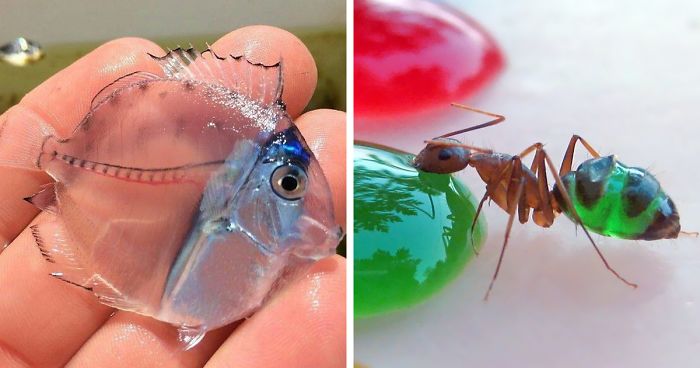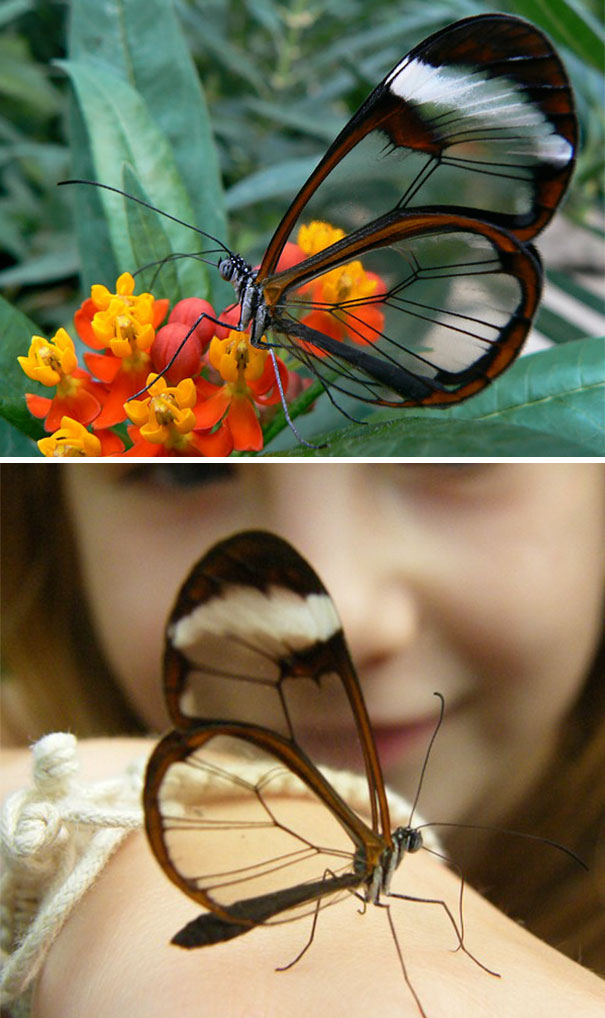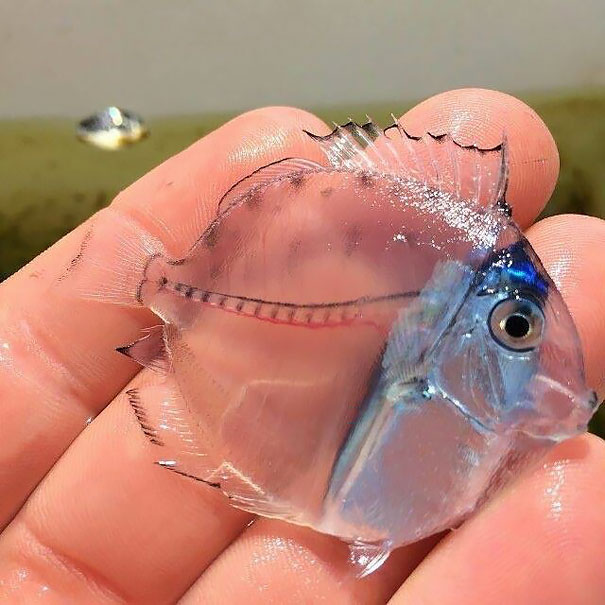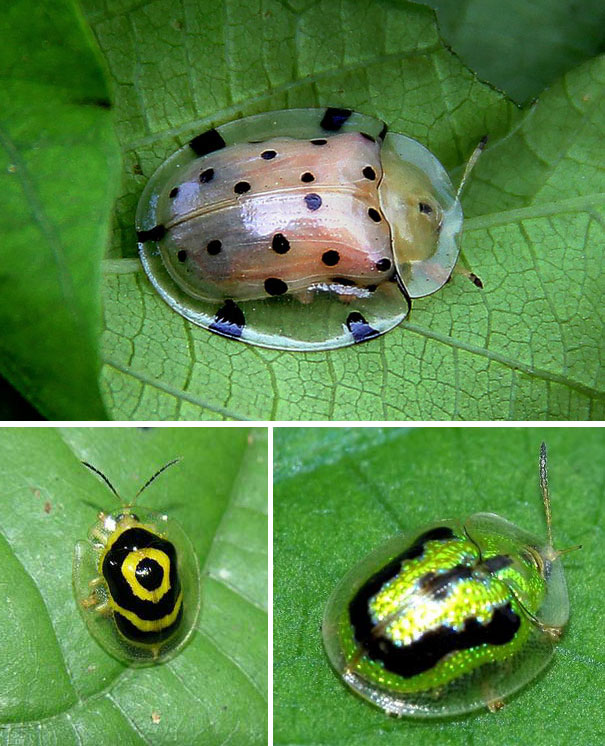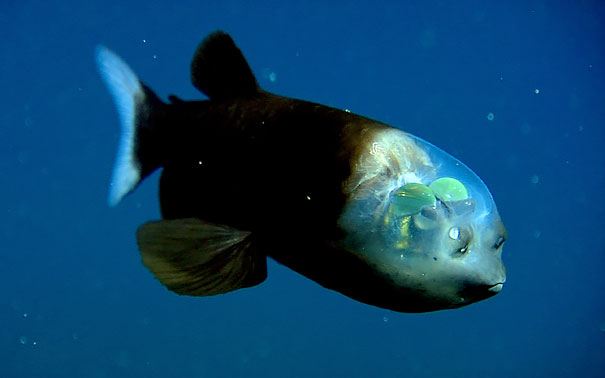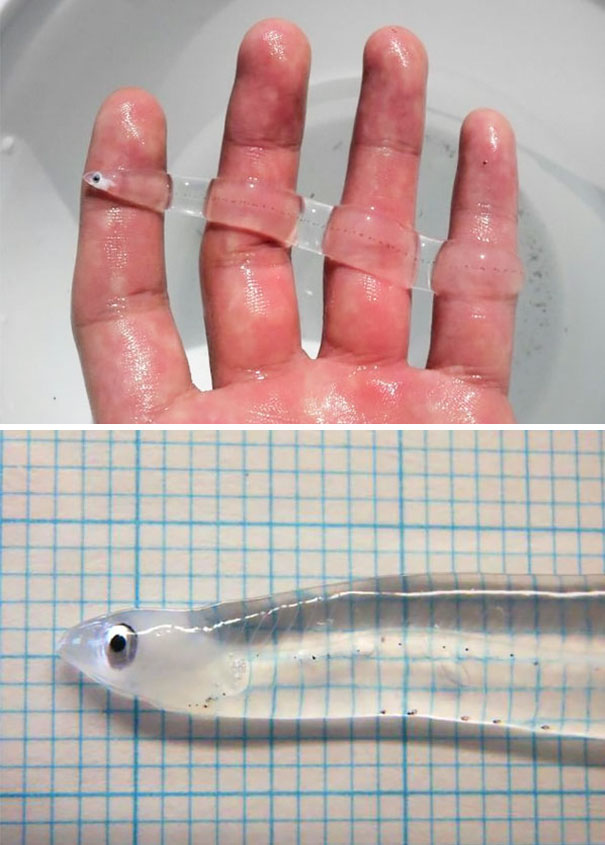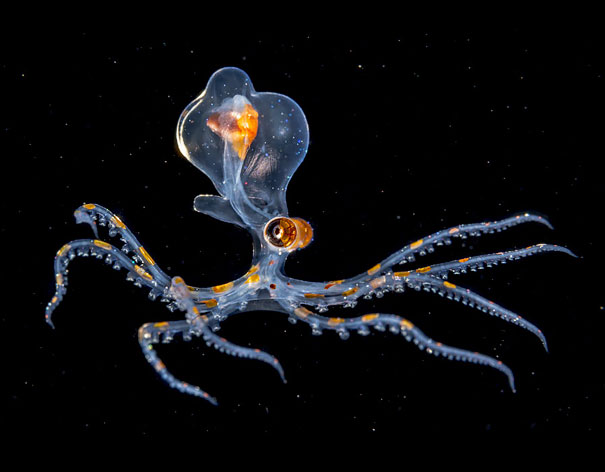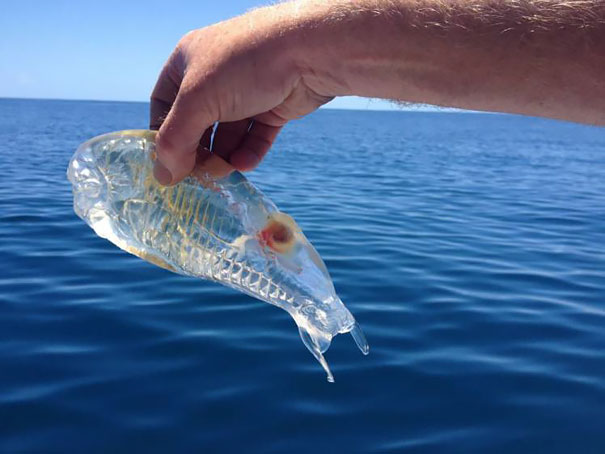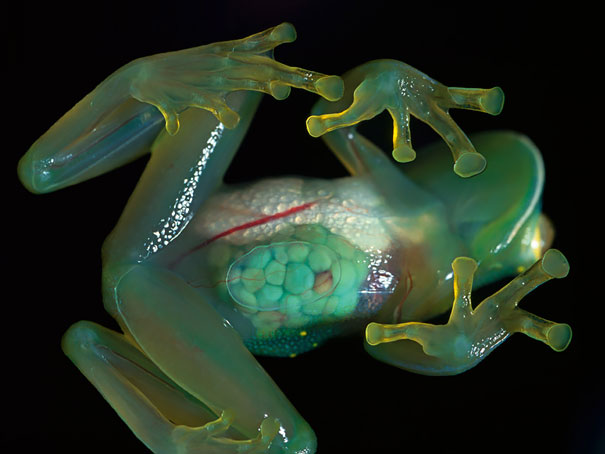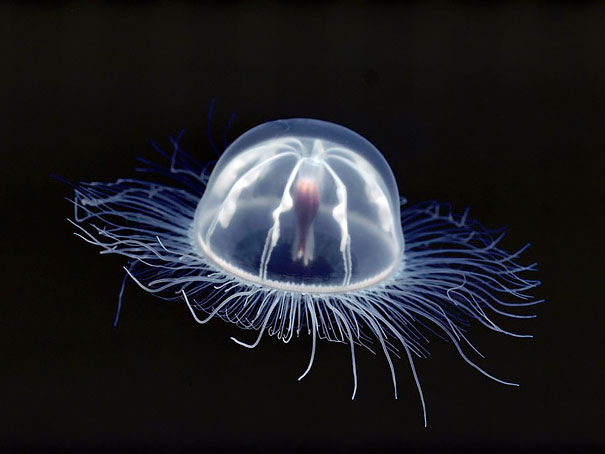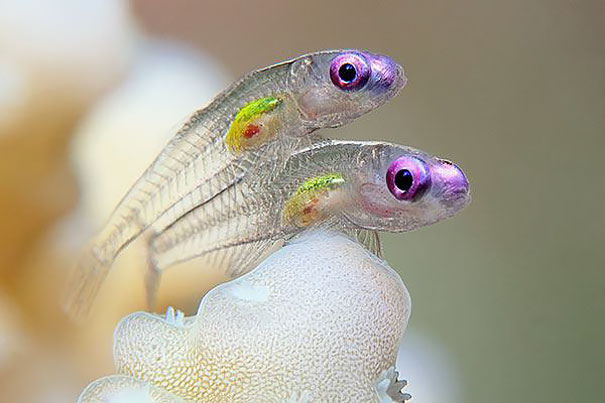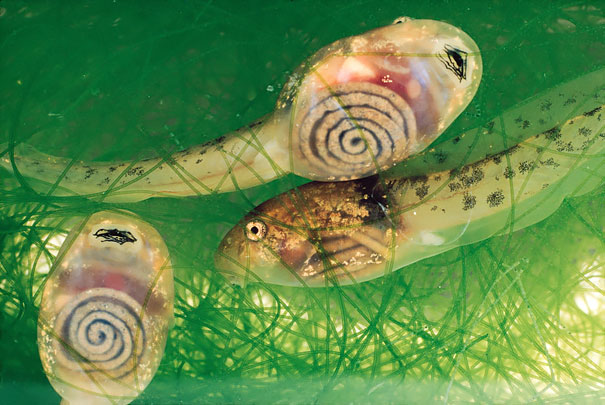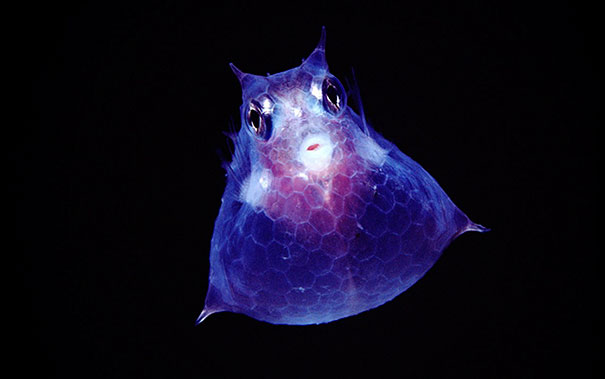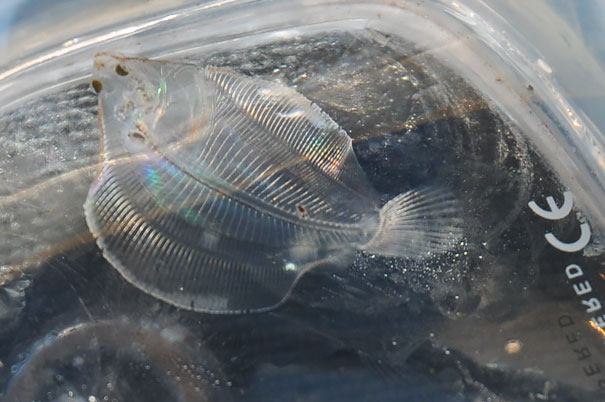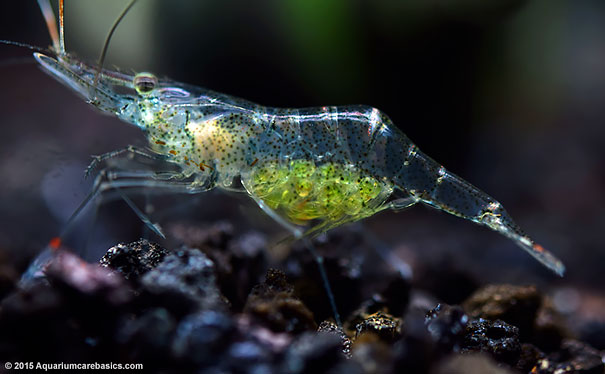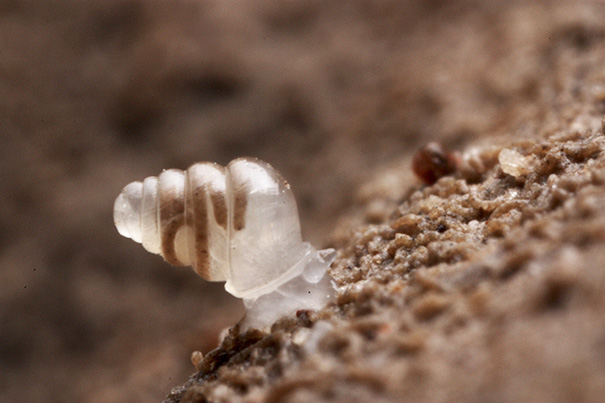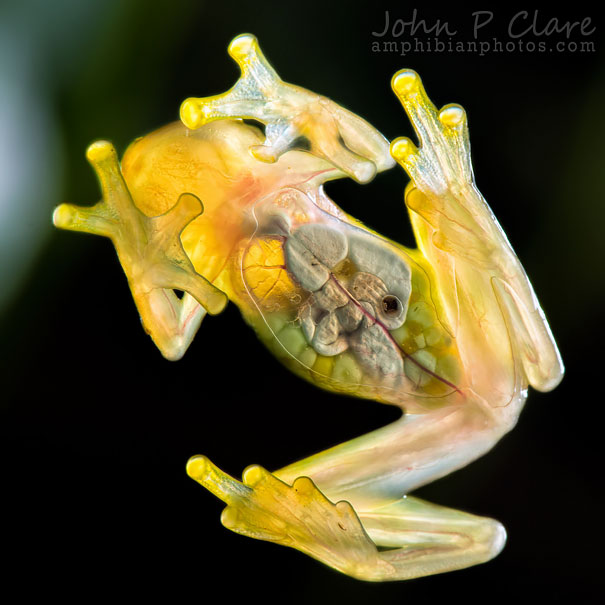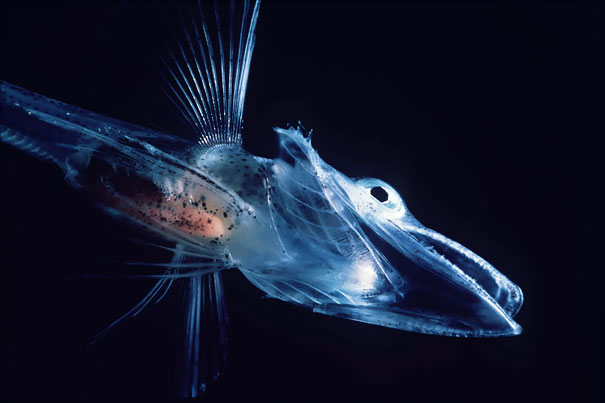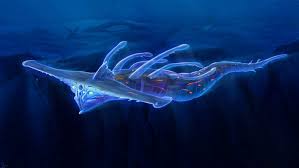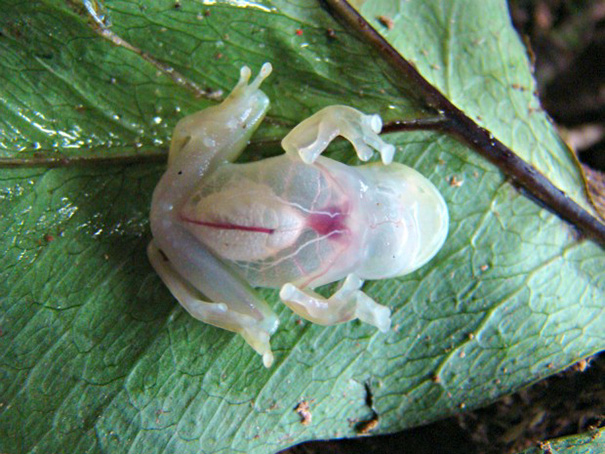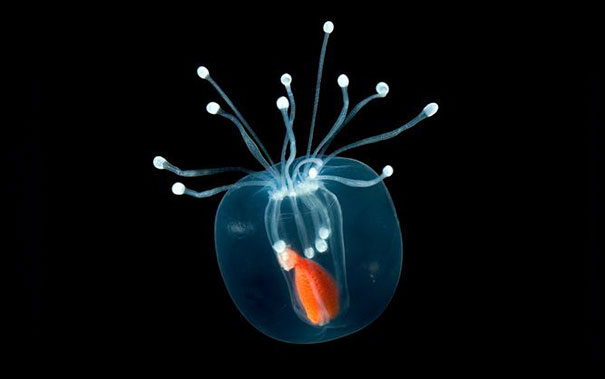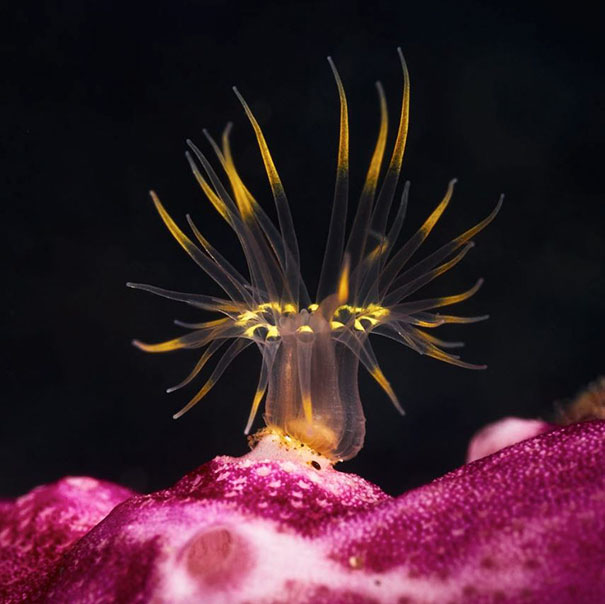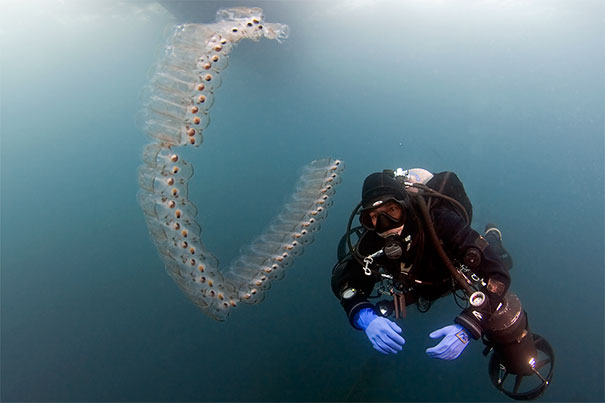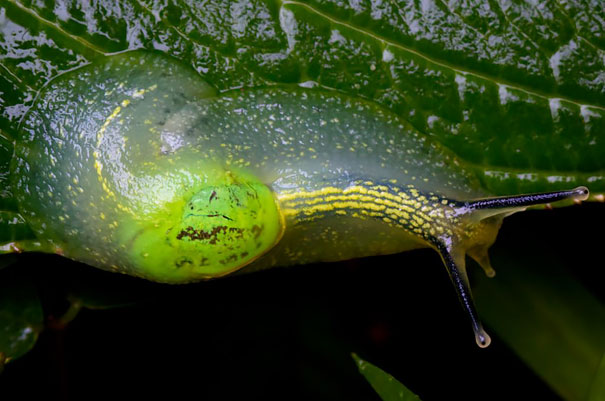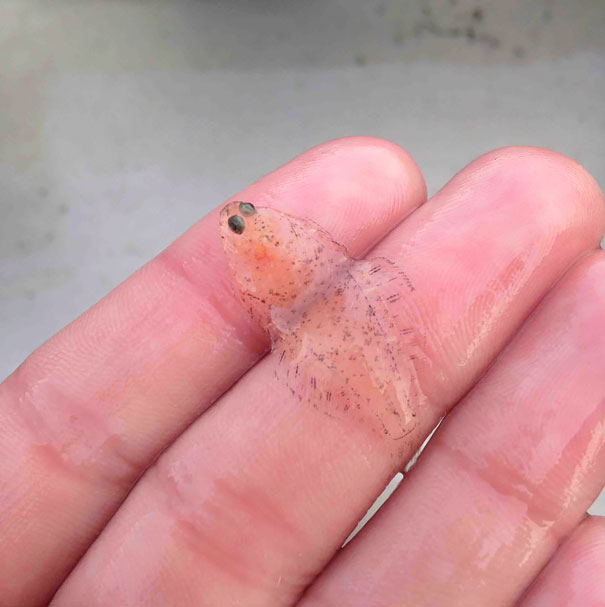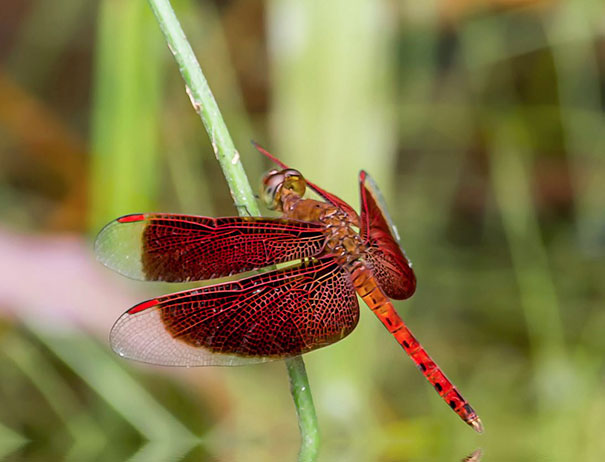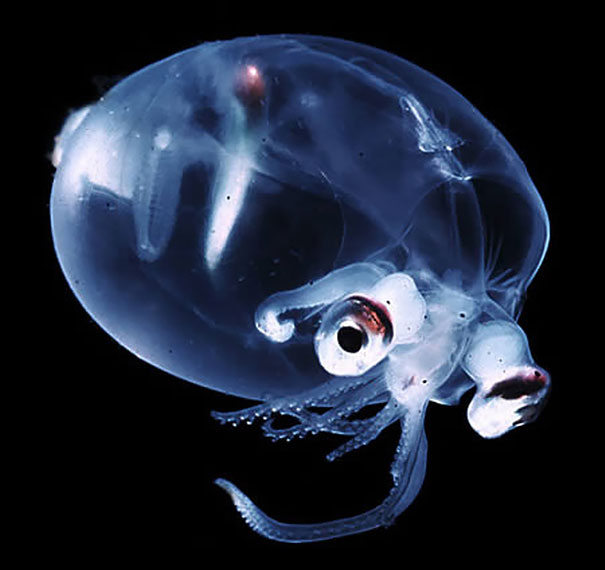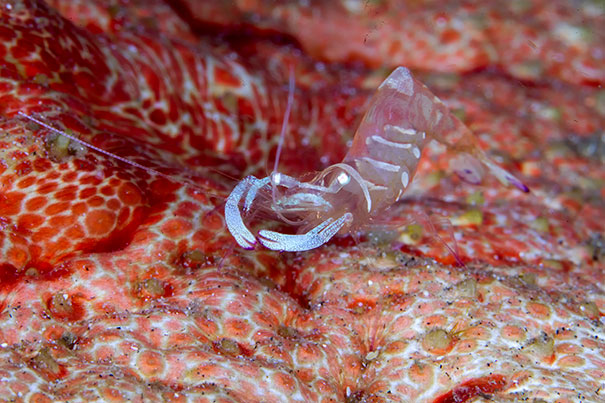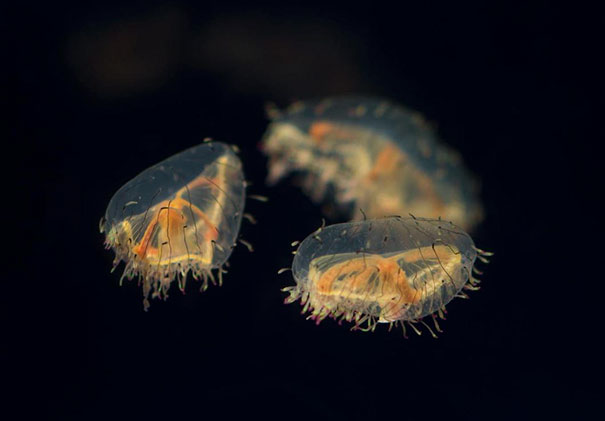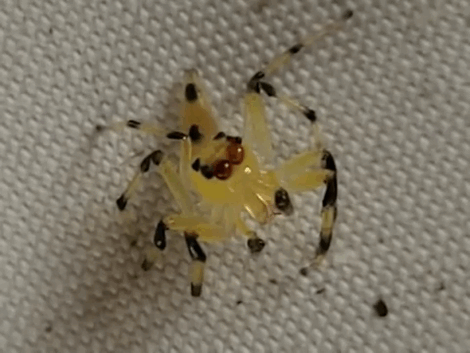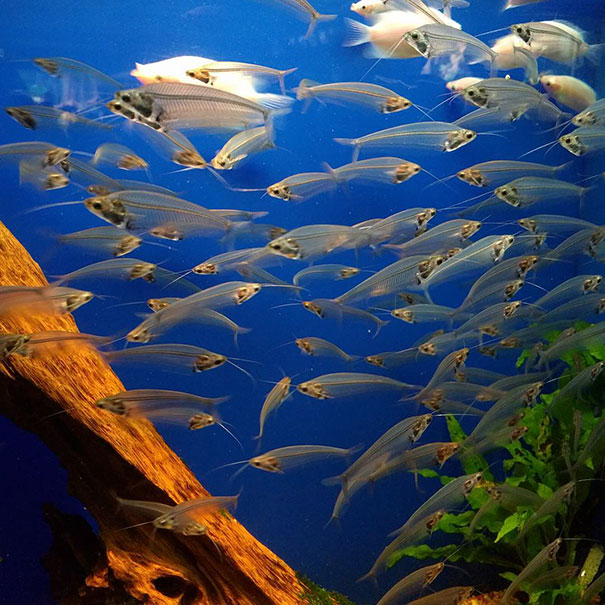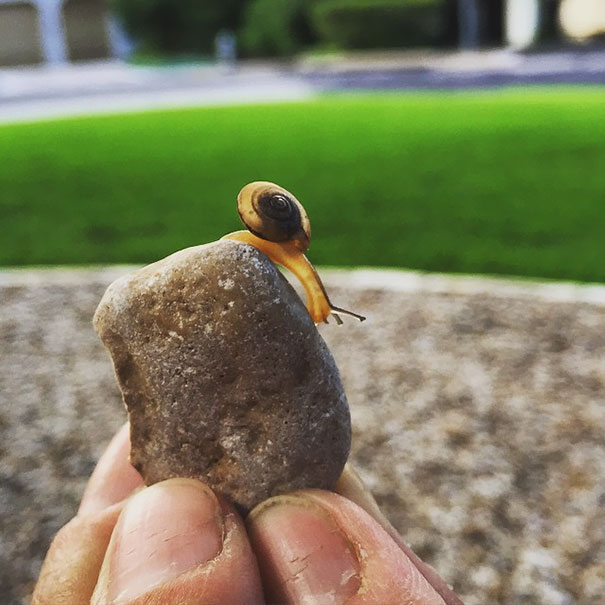Check out these animals, although you'll have to look closely. Why? Because they're invisible! Well ok, maybe not, but they are transparent. Want to know why many of the animals featured below are sea-dwelling creatures? The answer is all about self-preservation. As pointed out by Scientific American's Sönke Johnsen, "almost all open ocean animals not otherwise protected by teeth, toxins, speed or small size have some degree of invisibility."
Check out this list of transparent animals compiled by Bored Panda, and don't forget to vote for your favorite!
This post may include affiliate links.
The Glasswinged Butterfly
Greta oto (glasswinged butterfly) is a brush-footed butterfly. The transparency of its wings results from the combination of three properties: first, from the low absorption of the visible light by the material constituting its wings, second, from the low scattering of the light passing through the wings and finally, from the low reflection of the light impinging on the wings surface. Adult glasswings can be found mostly from Central to South America as far south as Chile. They can migrate great distances and have been documented as far north as Mexico and Texas. (source: wikipedia)
Juvenile Sharpear Enope Squid
This is a juvenile sharpear enope squid (Ancistrocheirus lesueurii). Its transparent body is covered with polka dots of pigment-filled cells, and below its eyes are bioluminescent organs. They may be found throughout the tropical and subtropical oceans, often at depths of between 200-1000 metres. (source: telegraph, wikipedia)
Transparent Juvenile Surgeonfish
This transparent fish is a juvenile Surgeonfish. They're found in a wide range of waters including those around New Zealand. Believe it or not, it's the same species of fish as Dory from Finding Nemo/Dory! They can grow up to 30cm (12 inches) long and are popular aquarium fish. (source: wikipedia)
Translucent Pharaoh Ants Eating Colored Liquids
The pharaoh ant (Monomorium pharaonis) is a small (2 mm) yellow or light brown, almost transparent ant notorious for being a major indoor nuisance pest, especially in hospitals.[1] The pharaoh ant, whose origins are unknown, has now been introduced to virtually every area of the world, including Europe, the Americas, Australasia and Southeast Asia. (source: wikipedia)
Tortoise Shell Beetle
The tortoise shell beetle is not completely transparent, but it does have a carapace that is nearly invisible. The purpose of the transparent outer shell is to fool potential predators, as it reveals markings on its back that act as a warning. Tortoise beetles come in many different varieties, and the design under their clear shells can be distinct and beautiful. (source: mnn)
Macropinna Microstoma
Macropinna microstoma is the only species of fish in the genus Macropinna, belonging to the Opisthoproctidae, the barreleye family. It is recognized for a highly unusual transparent, fluid-filled dome on its head, through which the lenses of its eyes can be seen. M. microstoma has been known to science since 1939, but is not known to have been photographed alive until 2004. Old drawings do not show the transparent dome, as it is usually destroyed when brought up from the depths. (source: wikipedia)
European Eel
European Eels change colors several times throughout their lives. They start off transparent before turning brownish-yellow on their sides and belly. After 5–20 years in fresh or brackish water, the eels become sexually mature, their eyes grow larger, their flanks become silver, and their bellies white in color. In this stage, the eels are known as "silver eels." (source: wikipedia)
A Juvenile Octopus
This juvenile octopus is just 2 centimetres wide, and its internal organs can be seen through its transparent body. This one was spotted at night in the deep water off the coast of Tahiti. The orange spots on its tentacles change color and are used for camouflage. (source: ibttimes)
See-through Frog (Hyperolius Leucotaenius)
Hyperolius leucotaenius is a species of frog in the Hyperoliidae family. It is endemic to Democratic Republic of the Congo. At one time thought to be extinct, in 2011 Hyperolius leucotaenius was found and photographed on the banks of the Elila River, a tributary of the Lualaba, during an expedition led by Eli Greenbaum of the University of Texas El Paso. (source: wikipedia)
Fancy frog has it's nails painted. Pretty neat how you can see it's eggs!!
Transparent Butterfly
Salpa Maggiore
This fish was caught off the Karikari peninsula on the north island of New Zealand. Experts believe it could be a Salpa maggiore (Salpa maxima), commonly found in the Southern Ocean. (source: metro)
Glass Frog
The glass frogs (or glassfrogs) are frogs of the amphibian family Centrolenidae (order Anura). While the general background coloration of most glass frogs is primarily lime green, the abdominal skin of some members of this family is translucent. The internal viscera, including the heart, liver, and gastrointestinal tract, are visible through the skin, hence the common name. (source: wikipedia)
Transparent Immortal Jellyfish
Turritopsis dohrnii, otherwise known as the immortal jellyfish, is a species of small, biologically immortal jellyfish found in the Mediterranean Sea and in the waters of Japan. It is one of the known cases of animals capable of reverting completely to a sexually immature, colonial stage after having reached sexual maturity as a solitary individual. (source: wikipedia)
Wow it looks like something from The Avatar movie :) or a mysterious glowing straw hat. Fascinating.
Transparent Fish
Costa Rican Tadpoles
These are Costa Rican Tadpoles. The swirls you can see on their bellies aren't actually patterns - they're neatly coiled intestines! (source: national geographic)
It looks like somebody scribbled their mouths on with a ballpoint pen.
Juvenile Cowfish
Transparent Flatfish
It's iridescent if you look closely!! Imagine seeing this underwater...
Ghost Shrimp
Ghost shrimp is a name applied to at least three different kinds of crustacean: Thalassinidea, crustaceans which live in deep burrows in the intertidal zone' Palaemonetes, small mostly transparent shrimp commonly sold for use in freshwater aquaria; and Caprellidae, amphipods with slender bodies more commonly known as "skeleton shrimps." Ghost shrimp are sometimes targeted as prey even by fish smaller than them. (source: wikipedia)
Snail With Semi-Transparent Shell
This snail with a transparent shell is a recently discovered species called Zospeum tholussum. It was found at a depth of 980 metres by Dr Alexander Weigand in the Lukina Jama–Trojama, the deepest cave system in Croatia. (source: wikipedia)
Translucent Snail
Deep Sea Anglerfish
The larvae of the Deep Sea Anglerfish has a transparent, almost jelly-like skin. It only gets its color when it grows up. That's also when it develops the "lure" at the front of its head and the fang-like teeth that Anglerfish are famous for.
La Palma Glass Frog
Hyalinobatrachium valerioi, sometimes known as the La Palma glass frog, is a species of frog in the family Centrolenidae. It is found in central Costa Rica and south to Panama and the Pacific lowlands and slopes of western Colombia and Ecuador. The ventral surface is transparent, however, the heart is covered by white tissue and not visible. (source: wikipedia)
Ice Fish
Living in 10m (32ft) below the surface of the Southern Ocean, where temperatures hover around -2 °C (28.4 F), are fish that seem to be made of the ice they swim beneath. Antarctic icefish are so well-adapted to the frigid waters, they even have an antifreeze glycoprotein in their blood and body fluids to stop ice crystals forming. (source: bbc)
Fully Transparent Rain Forest Frog
The glass frog’s stomach is completely transparent. Close examination reveals a fully visible system of organs, including the heart, liver, and full intestinal tract. Scientists believe that earlier frogs of this species evolved to have this trait for camouflage; while perched on a leaf or branch, they are extremely difficult to spot from a distance. Different species can be found in Central and South American rain forests, usually in the canopy, far above the ground. (source: factzoo)
Hydromedusa
Is it only me who sees the little guy wearing orange coat and white hat inside? :D
Sea Anemone
Sea Salps
A salp is a barrel-shaped, planktonic tunicate. It moves by contracting and pumping water through its gelatinous body. Salp jet propulsion is one of the most efficient in the animal kingdom. The salp strains the pumped water through its internal feeding filters, feeding on phytoplankton. (source: wikipedia)
Clear Slug
Gaeotis flavolineata is a gastropod whose bright green shell has evolved to become too small for it to retract into fully — making it something in between a land snail and a slug. (source: pulptastic)
Transparent Fish
Close-up Dragonfly
Transparent Squid
These “see-through” squid are commonly referred to as Glass Squid and there are approximately 60 different species in our ocean. The only part of their bodies that are tinted with color are their cigar-shaped livers. When these creatures do want to be seen (like when they are mating) they can use bioluminescence to put on a colorful show for viewers. (source: awesomeocean)
A Translucent Shrimp Living On The Skin Of A Large Sea Cucumber
Translucent Jellyfish
Yellow Amycine Jumping Spider,
Transparent Fish, Sunshine Aquarium, Ikebukuro
Transparent Snail
Animal: Sunda Flying Lemur
the Sunda flying lemur sometimes resembles a bearskin rug more than it does a living, breathing animal. Hailing from Malaysia, this animal is technically neither a lemur nor a flying creature. Instead, the webbed skin between its limbs allows it to leap and glide between trees, where it forages for plants and fruits at night.
https://kaavannan-perl.blogspot.com shuttersto...9eeb0d.jpg 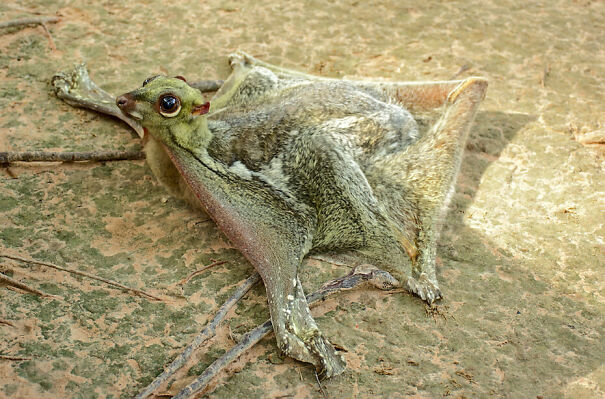

 Dark Mode
Dark Mode 

 No fees, cancel anytime
No fees, cancel anytime 


